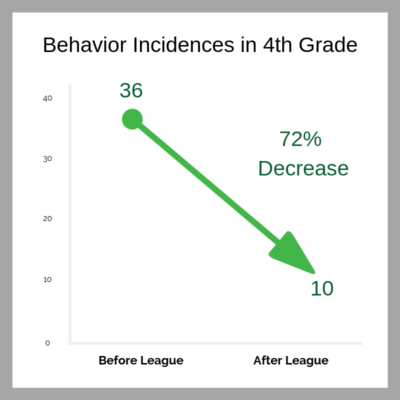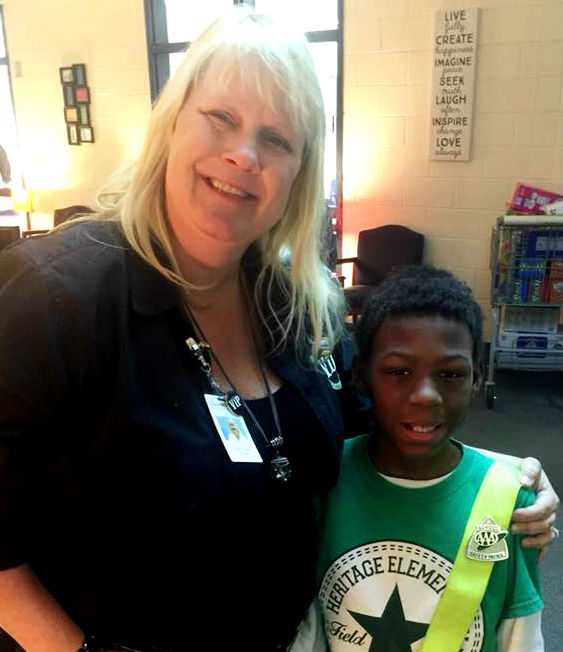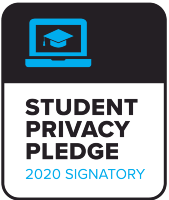“Suspension doesn’t work. They get in a fight, you send them home for five days, they don’t come back any more equipped to handle what’s going on than before.”
The Problem
There were 36 behavioral incidents in the fourth grade during the first four months of the 2017-2018 school year. Some of them were severe. Students were fighting. And physical fights weren’t something Principal Jennifer Askew was used to seeing at her school.
Mrs. Askew has been the principal at Heritage Elementary, a Title I school in Macon Georgia, for the past 11 years.
“It was starting to happen every other day, or at least once a week,” explained Askew, noting that the kids seemed to be desensitized to the fighting, like it was no big deal. “And it was a big deal to us, because we’re a school that did not have fights near that frequency.”
Traditional punishments like detentions and suspensions weren’t changing the behavior. “Suspension doesn’t work,” lamented Askew. “They get in a fight, you send them home for five days, they don’t come back any more equipped to handle what’s going on than before.”
Askew and her team knew they’d need to try something totally different if they were going to turn around the culture of Heritage Elementary. They decided to dig into why these behaviors were happening, and proactively find positive behavioral interventions to fix these issues.
Students needed a sense of purpose, a connection to the school, a place where they belong, and a framework to address skill deficits.
The Solution: A Comprehensive Behavioral Intervention
Askew created and piloted a new program with 16 fourth-grade boys: The League of Extraordinary Gentlemen. The League was marketed to students as an exclusive club. Membership wasn’t given, it needed to be earned. The 16 boys were invited to be candidates for The League based on recommendations from teachers, primary behavior issues, what interventions had already been tried, and other factors.

To achieve membership in The League of Extraordinary Gentlemen, each student had the opportunity to earn badges in eight different areas over an 11-week period. For example, the boys earned badges for reading a book to a kindergarten student, listening to talks from adult male role models in the community, and for completing Centervention’s Zoo U, an online game that helped them practice social and emotional skills. During their League candidacy, each of the boys had a daily check-in and check-out with an adult mentor in the school. And when a student earned six or more badges, they graduated to become League members, earning a certificate and attending a special ceremony.
Elaborating on the badge system, Scott Davidson, PBIS coach at Heritage, emphasized, “The Zoo U badge is a non-negotiable. Maybe you can miss out on another one, but you can’t miss that one.”
“To see that a child had 0% empathy was an eye opener.”
The Zoo U program provides personalized data on each student. Students begin by playing six short game scenes that, from their perspective, are a fun game, but provide valuable information to educators on where students currently stand with six social and emotional skills: impulse control, emotion regulation, empathy, communication, cooperation, and social initiation (making and keeping friends). Davidson noted the data allowed the staff to provide a personalized approach to addressing skill deficits for each student.
“To see that a child had 0% empathy was an eye opener,” remarked Askew. “And I’m like, ‘Good lord we’re trying to make them feel bad!’ You know, like, ‘Do you not feel bad that you just tripped your best friend?’ ..’No’.. And they really didn’t. They really lacked empathy.”
Radical Results

Since The League of Extraordinary Gentlemen was founded with 16 boys in Fall 2017, Heritage Elementary has seen marked improvement in not just the behavior of students in The League, but across the entire fourth grade. In the first four months of school, before the program was started, there were 36 behavior incidences in the fourth grade. In the four months after the program, there were only 10.
Davidson compared the effect to not throwing rocks in a pond. By helping a small group of students, they reduced the ripple effect of those students’ behavior on the entire grade level. There has been a 47% reduction in the number of students involved in fights, as well as a 72% decrease in discipline incidents for the fourth grade as a whole. And none of the students involved in The League were involved in any fights.
One student in particular made significant improvement. Prior to his candidacy in The League of Extraordinary Gentlemen, this student had 13 Minor Incident Reports (MIR) and two office referrals in the first nine weeks of school, which resulted in four days of in-school suspension. After joining The League, he never received another office referral; and, for the remainder of the year, he only had one MIR.
When students are accepted into The League of Extraordinary Gentlemen, in addition to their certificate and League t-shirt, they are invited to attend League days twice a month. “I wanted them to see that there’s a reward at the end if you’re willing to work hard,” explained Davidson, who facilitates the League days and acts as a positive male role model. “On League day we all wear our shirts — I have one that matches it — and we stand out. We’ll talk about the things that are going on with them: what’s going right, what’s going wrong, how can I help you? And we’ll have some fun. We might go outside and throw the football, we might hang out in my room and just eat some snacks and stuff.”
Davidson is so committed to these boys’ success that he even got an after-school job as a part-time football coach at the middle school they’ll attend. He wants to build a long-term relationship with them to ensure all of their hard work sticks.
That idea of long-term relationships is why they’ve opened The League of Extraordinary Gentlemen to both 3rd and 4th grade in the 2018-2019 school year with six students from each grade level. Current 5th grade boys who were inducted into the League last year will act as mentors to the new candidates. Both Davidson and Askew marveled at the leadership skills of the 5th grade League graduates. “They’re safety patrol members, they’re fire marshals, they’re future teachers,” Davidson beamed.
“They’re safety patrol members, they’re fire marshals, they’re future teachers.”

Askew asserts that teaching social and emotional skills needs to become the role of the school in a way it hasn’t been before. Dr. Jenny Scarborough, School Counselor at Heritage, adds, “It’s just like with reading. If they can’t read by 2nd grade then we’re in big trouble. And I would say it’s probably pretty true, too, about social and emotional development.”
The success of The League of Extraordinary Gentlemen can be attributed to the combination of staff mentoring, the Centervention programs (Zoo U), outside speakers, and the sense of comradery and belonging that the group gave the boys. “Versus that child who we could have just kept suspending, and he comes back… and suspend him longer… and he comes back. It’s not changing the behavior. And our goal is to give them the strategies to deal with whatever is causing their problems,” explains Askew.
Both Askew and Davidson admit that all of their efforts are time-intensive and more work than standard punitive measures like suspension and detention. And they’re willing to put in that work.
“These kids used to shun me,” Askew recalls. “As the principal, I was the person they had to go see when they got in trouble. But now, after graduating from the program, they give me hugs in the hallway.
“If we turn around one child’s life, it’s worth it to me.”
Want to Evaluate Zoo U at Your School?
Educators, you can evaluate Zoo U for free for 30 days, and when you are satisfied, you can purchase student licenses for only $12 per student. There is no minimum purchase required.
